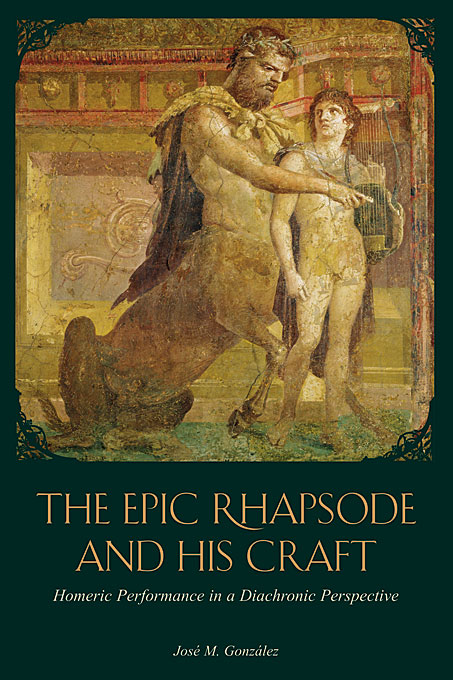The Epic Rhapsode and His Craft: Homeric Performance in a Diachronic Perspective, by José M. González
 The Center for Hellenic Studies is happy to announce the online publication of The Epic Rhapsode and His Craft: Homeric Performance in a Diachronic Perspective, by José M. González on the CHS website.
The Center for Hellenic Studies is happy to announce the online publication of The Epic Rhapsode and His Craft: Homeric Performance in a Diachronic Perspective, by José M. González on the CHS website.
The Epic Rhapsode and His Craft studies Homeric performance from archaic to Roman imperial times. It argues that oracular utterance, dramatic acting, and rhetorical delivery powerfully elucidate the practice of epic rhapsodes. Attention to the ways in which these performance domains informed each other over time reveals a shifting dynamic of competition and emulation among rhapsodes, actors, and orators that shaped their texts and their crafts. A diachronic analysis of this web of influences illuminates fundamental aspects of Homeric poetry: its inspiration and composition, the notional fixity of its poetic tradition, and the performance-driven textual fixation and writing of the Homeric poems. It also shows that rhapsodic practice is best understood as an evolving combination of revelation, interpretation, recitation, and dramatic delivery.
José M. González is Andrew W. Mellon Assistant Professor of Classical Studies at Duke University.
Scholars interested in this work might also be interested in:
- Anna Bonifazi, Homer’s Versicolored Fabric: The Evocative Power of Ancient Greek Epic Word-Making
- Egbert J. Bakker, Pointing at the Past: From Formula to Performance in Homeric Poetics
- Gregory Nagy, Plato’s Rhapsody and Homer’s Music: The Poetics of the Panathenaic Festival in Classical Athens
- Richard Martin, The Language of Heroes: Speech and Performance in the Iliad
